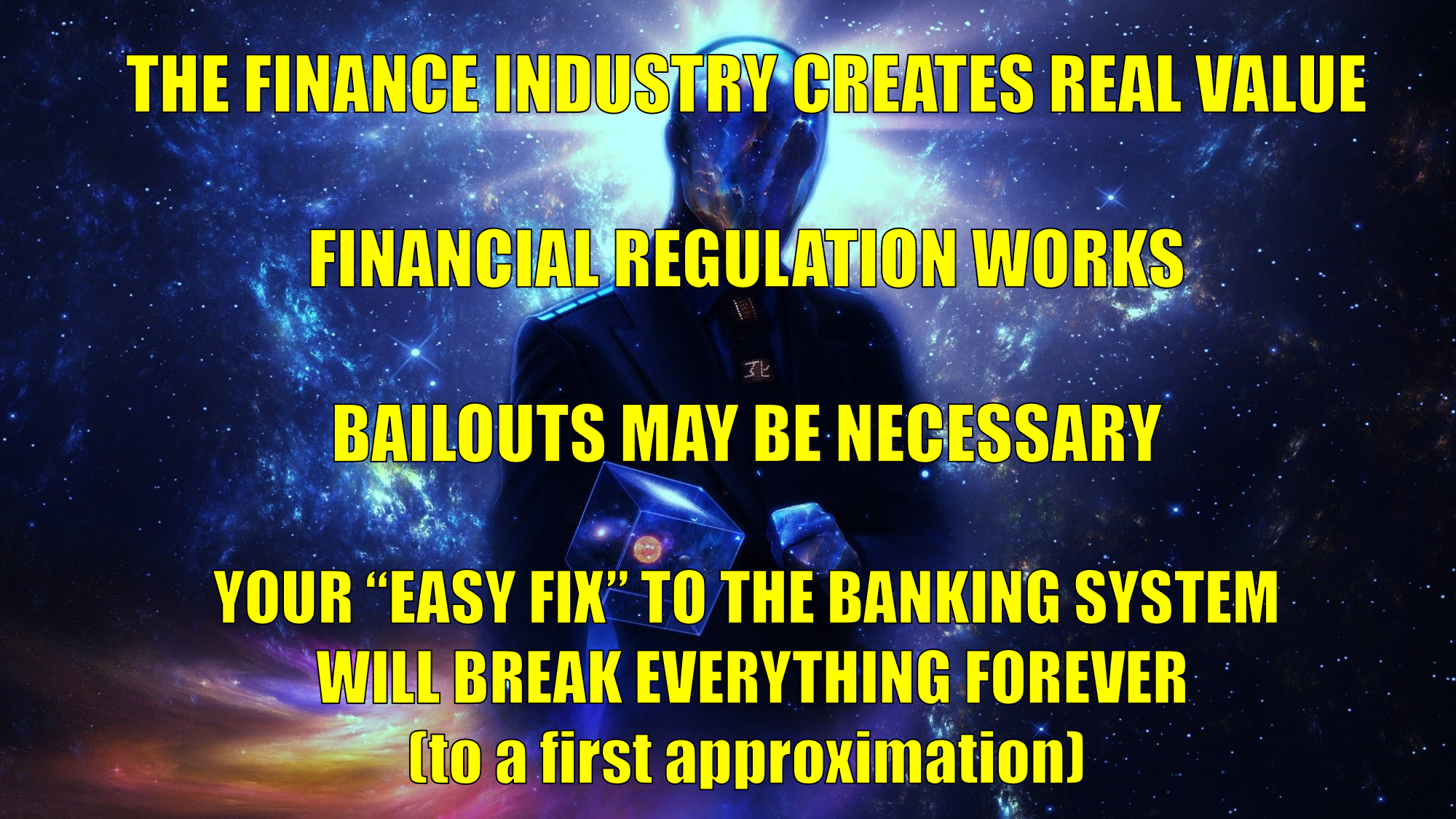
I'm sharing the link instead of a full cross-post because this essay has:
- 5,300 words
- 2 footnotes, with links that actually work
- 1 GIF, 2 charts, 5 expanding brains
- 30+ lively comments
This is a "much more than you wanted to know" type post on the financial industry:
- Why everyone hates it, except for people in positions of power.
- The value of finance in coordinating trade across space and time, told via the parable of Banksy and the corn cobs.
- Are mortgage-backed securities a scam or a brilliant innovation?
- The stupid arguments about bailouts, and the smarter arguments for/against bailouts.
- Economists writing books about bank equity ratios without googling what those equity ratios actually are.
- What is up with equity ratios? Is making banks hold 50% capital the solution to financial crises?
- What banking regulations actually make banks do.
- The inextricable romance between finance and government.
- A final request for incrementalism and humility.
This seems very far from obvious and needs more explanation even if it's true. Suppose that interest rates fell simply because people became more patient and intrinsically lowered their time discount. Would central banks raise interest rates and force the level of savings/investment back to previous levels? I think no, at least not in the long run, because central banks ultimately care about inflation, not interest rates, and if people lowered their time discounts and as a result shift resources from consumption to saving/investing, that shouldn't cause more inflation at least not as a first order effect. Maybe the central banks would raise interest rates a bit to counteract some second order effects but we should expect to end up with an equilibrium with lower interest rates and more saving/investing then before.
It seems to me that if financial innovation made it easier or more efficient to pool and redistribute risk for investing in some sector, so as to better match the preferences of investors, the results of that would be similar to the above. We should end up with an equilibrium where some resources have been shifted from consumption to investment in that sector, and overall more saving/investing then before.
I don't see why I should expect real costs to be lower here.
In cases where there are real savings, it's usually pretty easy to point to the kinds of resources being saved. Efficiency gains in real goods, such as just-in-time supply chains, allow for less warehousing of goods, which means we don't need to make as much stuff, in order to have stuff when we need it. I think the burden of proof here is on the claim that the financial savings in financial engineering correspond to real savings on net.
This kind of financial engineering allows bank... (read more)